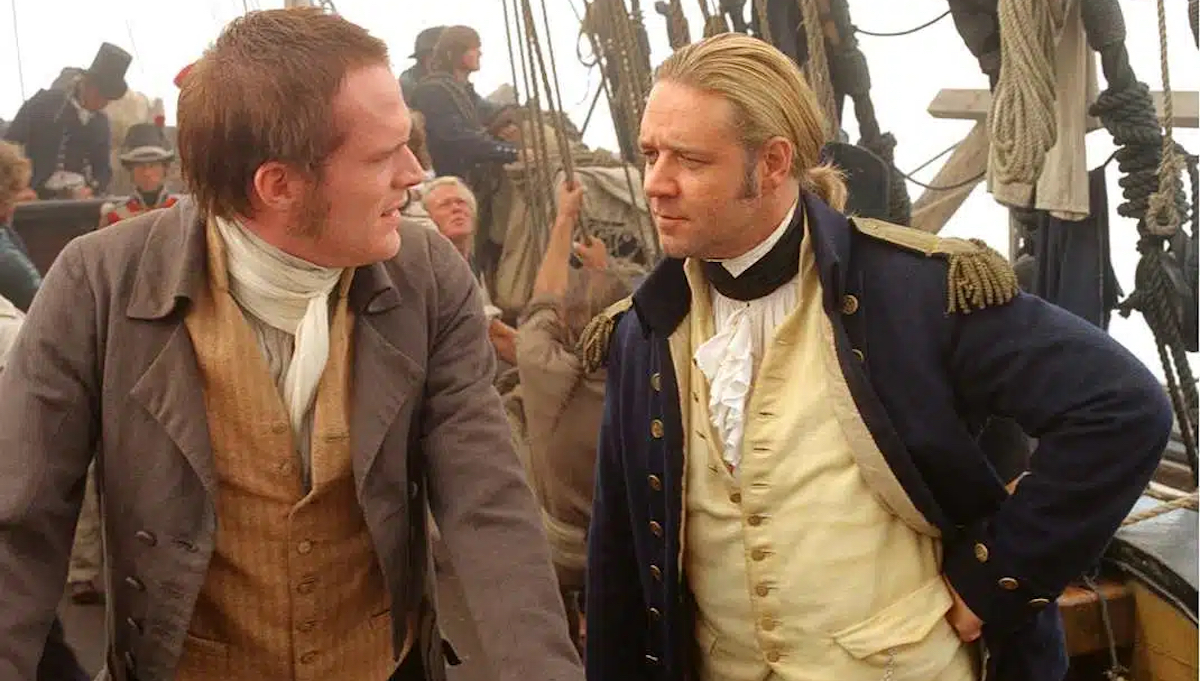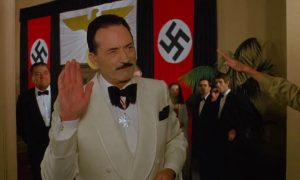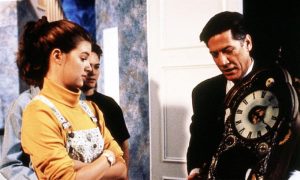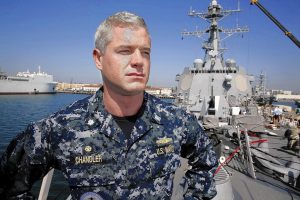
Russell Crowe has had a long career with few regrets. In fact, he says there is only really one in his professional life—a musical biopic he won’t name but that he turned down and it went on to be a hit (so begin your speculation now). Mostly while speaking to British GQ for this month’s cover story, however, Crowe expressed deep satisfaction with the onscreen side of his life, and even pushed back at assertions that he’s mostly remembered now for one role as a Roman general in Gladiator.
While talking at length about the many opportunities and setbacks he’s had in his life, Crowe notes he has folks still come up to him to talk about Bud White in L.A. Confidential, or John Nash in A Beautiful Mind. There’s even a certain species of movie nerd out there—which this writer pleads guilty to—who loves the hell out of The Nice Guys. Yet one of the roles Crowe seemed to take the most pride in remains Master and Commander: The Far Side of the World, a film that despite being nominated for Best Picture and Best Director after its release in 2003 has felt like it’s flown under the radar.
“Master and Commander has such a huge audience now,” Crowe told GQ. “They love that movie! And I couldn’t figure out why all these chicks were talking to me about Master and Commander. But there’s an aspect to the masculinity in that movie that’s about honor, it’s about fidelity, it’s about, you know, fulfilling your role. There’s a masculinity that’s not toxic.”
Crowe has a point—both apparently about the movie’s appeal to women, perhaps more now than ever, and about how its specific interpretation of a masculine ideal is often absent in modern cinema.
Despite being perhaps as perfect as any film could ever be about naval combat during the age of Napoleon, Master and Commander was faintly underrated in its time due to opening in the shadow of Peter Jackson’s The Lord of the Rings: The Return of the King. During the holiday season of 2003, Master failed to gross $100 million worldwide (hence why writer-director Peter Weir never adapted any other of Patrick O’Brian’s beloved source material novels); it likewise was largely shut out of any major Oscar wins due to the popularity of the same high-fantasy movie.
And yet, it’s interesting to note both Lord of the Rings and Master and Commander share some contextual DNA that might inform the “not-toxic” masculinity Crowe speaks of. While they survived different world wars, authors J.R.R. Tolkien and O’Brian were similarly impacted by catastrophic events in the early 20th century: Tolkien famously served in the British Army during the First World War, surviving the Battle of the Somme, and O’Brian was 24 when the Nazis invaded Poland. During the Blitz firebombing of London, he served as an ambulance driver in the capital, and after the war allegedly worked in British intelligence, though the details of that service remain undisclosed.
Both writers went on to define genres of literature for the rest of their century, too, one in fantasy and the other in historical fiction, or naval warfare to be more specific. And both of their most influential works—Lord of the Rings and O’Brian’s “Aubrey-Maturin” series—romanticized the kind of fellowship and sense of self-sacrifice that emerges in many who served in the proverbial or literal trenches during a cataclysmic war. Whether their stories are set during the War for the One Ring or the Napoleonic Wars, each author is drawn to tales of a world on fire and a brotherhood enduring the inferno.
Each source material text has also come under heavier scrutiny in the 20-plus years since these 2003 film adaptations. Both the story of Middle-earth’s “Men of the West” standing tall against invasion and Master and Commander’s more straightforwardly heroic British naval officers represent a definite imperialist point-of-view. And yet, much like there is still value in the text and meaning of Rudyard Kipling’s “If” poem, they also depict a certain type of service and sense of self-sacrificing fortitude that has largely gone out of fashion in modern pop culture. Master and Commander, in particular, is quite sober-eyed about the injustices and cruelties of the wooden world it depicts.
The central relationship in the novels and film, that between Capt. Jack Aubrey (Crowe) and the HMS Surprise’s chief surgeon, Stephen Maturin (Paul Bettany), is based on a social and class imbalance. Aubrey is a remarkable man of learning and tact despite his nigh tyrannical position as a naval captain in the early 19th century. However, he was able to rise to that position because he comes from a family enshrined in the upper-echelons of British society, with his father being a general and his neighbor married to a lord who granted him command of the Surprise so many years ago. As an Irishman, by contrast, Stephen comes from an impoverished and occupied land and implicitly agreed to serve on a naval ship as it was his only means to afford a scientific education and a chance to explore the natural world.
But as seen in the movie, Stephen is never allowed to truly practice his naturalist inclinations. (If he were, he’d have beaten Darwin to the theory of evolution by half a century!) Meanwhile the actual clash between enlisted men and officers, with the former often conscripted into the navy against their will, is the true dramatic tension bubbling beneath the surface of Master and Commander—not the French prize they seek.
Yet the film can be aware of the injustices and ironies of its historical setting, but it does not revise or erase them for easier modern consumption, nor does it paint with a broad, condescending brush the lives and values of the Surprise’s crew. Weir strove for a pronounced historical authenticity and fidelity, and could find the bitter ugliness in how nautical superstition and tribalism can hound someone like Midshipman Hollom (Lee Ingleby) to a lonely suicide in the black of night, black of sea… but it also can find the sense of unspoken fraternity and soulfulness in the ostensibly class-divided Aubrey and Maturin as they create musical harmony on their complementing violin and cello.
It paints all aspects of life on a 19th century vessel of war—including the masculinity derived from an all-male crew—in all its shadings and complexities.
The post Russell Crowe Says the ‘Not-Toxic Masculinity’ of Master and Commander Made It a Classic appeared first on Den of Geek.











